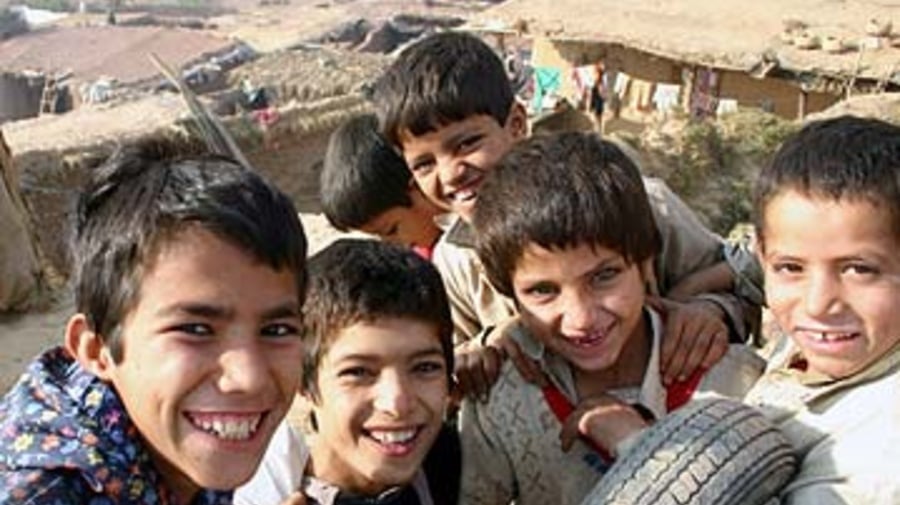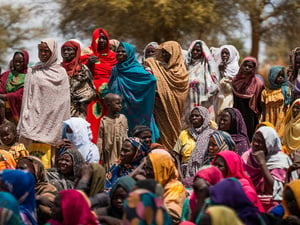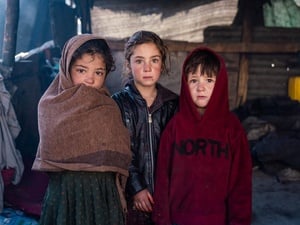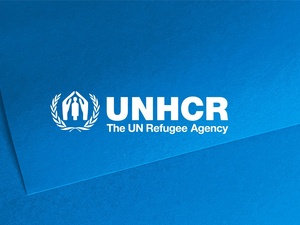UNHCR and Pakistan plan census of Afghans in Pakistan during February
UNHCR and Pakistan plan census of Afghans in Pakistan during February

Afghan children, like these in a slum area of Islamabad, will be included in the February census of Afghans living in Pakistan.
ISLAMABAD, Jan 11 (UNHCR) - The government of Pakistan and the UN refugee agency will conduct a census during February 2005 of all Afghans in the country, providing the first detailed information on their numbers and background.
The census, in which all Afghans who arrived in Pakistan after December 1, 1979 must participate, will assist the government and UNHCR in developing policies for those Afghans who do not return home before the end of the UNHCR voluntary repatriation programme in March 2006.
The agreement was formally endorsed at a meeting on Tuesday between the UN High Commissioner for Refugees, Ruud Lubbers, and the Federal Minister for States and Frontier Regions (SAFRON), Sardar Yar Muhammad Rind.
Lubbers, on an official visit to Pakistan and Afghanistan, arrived in Islamabad early in the morning and began the series of meetings with government leaders scheduled for his 24-hour visit by holding talks with Rind, whose ministry deals with Afghan refugees in Pakistan.
Although UNHCR has been assisting Afghan refugees in Pakistan for a quarter century, there has never been a formal census or registration of those who fled the fighting in their homeland. This will be the first chance to check government estimates of some 3.2 million Afghans - refugees and others - in Pakistan.
"The census of Afghans will help us to find out their exact number in Pakistan," Rind said in his meeting with Lubbers. "In the absence of proper statistics no planning is possible after the end of the tripartite agreement in 2006. We thank UNHCR for its financial and moral support in carrying out the exercise."
The preliminary phase, mapping out concentrations of Afghan population in preparation for the census, is already underway across the country. The actual census will be carried out in the second half of February.
The census will include all Afghans who arrived in Pakistan since the beginning of December 1979, covering those who came during the decades of war inside Afghanistan that caused millions of residents to flee abroad.
Any Afghan who does not participate and cannot provide a compelling explanation will be treated according to Pakistani laws. Only those included in the census will be eligible to take part in a proposed registration later in the year that could provide some sort of document.
"In a few months we will have the results of the census exercise on which a registration will be carried out," Lubbers told the Pakistani minister. "The results of the census will also help in the process to develop future arrangements [for Afghans]."
The census will be carried out over a period of approximately 10 days by teams, each with a man and a woman, who will conduct interviews with all families in their homes.
Afghans will be able to find out in advance when census teams will be in their areas and should ensure they are at home. Only Afghan citizens will be recorded and anyone who has a validly obtained Pakistani identification card will be excluded.
Census takers will record the gender, ethnicity, address and source of livelihood for all Afghans. They will also record when Afghans arrived in Pakistan and whether or not they intend to return to Afghanistan by the end of the voluntary repatriation programme.
UNHCR is covering the nearly $800,000 cost of the first phase of the census. The registration phase, which will be decided after examining the results of the census, is estimated to cost $5 million.
UNHCR and the Government of Pakistan have agreed that the voluntary repatriation of Afghan citizens from Pakistan, under the Tripartite Agreement which expires in 2006, is the preferred goal. In the past three years UNHCR has assisted nearly 2.3 million Afghans to return from Pakistan and anticipates a further 400,000 will repatriate during 2005.
However, the UN refugee agency believes about a million Afghans now remain in refugee camps and an unknown, but substantial number, are living in Pakistani cities. The census will provide vital information for shaping policies for those who remain after March 2006.








